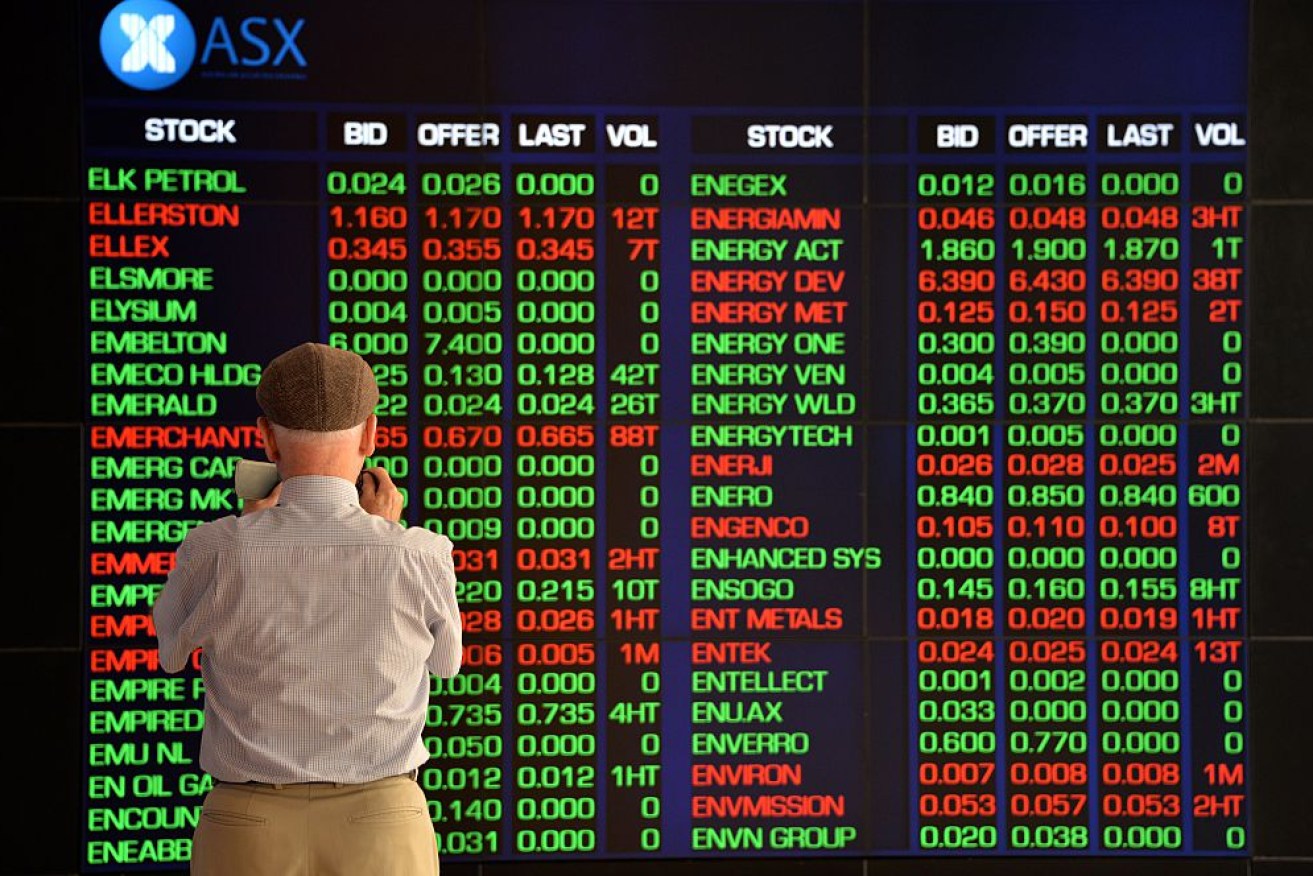Why Australia’s economy is skating on thin ice


Economists are warning a global financial downturn is just around the corner. Photo: Getty
Global debt levels are a ticking time bomb, and it’s only a matter of time until something lights the fuse.
That’s the message from a growing chorus of economists, as US President Donald Trump ramps up his trade war with China, and central banks scramble to limit the fallout.
High volatility in sharemarkets and declining bond yields indicated a looming financial downturn in the eyes of Industry Super Australia chief economist Stephen Anthony.
And high debt levels suggested the fallout would be severe.
“We know there’s all sorts of debt out there, across all sorts of economies – and that constitutes the dynamite,” Mr Anthony told The New Daily.
“The question is what lights the fuse, and right now we just don’t know.”
But with the US-China trade war escalating, the price of iron ore fluctuating, and the general Chinese economy slowing, Mr Anthony said there were enough headwinds to potentially blow the Australian economy off course.
“Essentially we could slowly sink into this, or it could happen very quickly as a result of unintentional monetary tightening.”
Tweet from @paulkrugman
Digital Financial Analytics principal Martin North was even more negative, telling The New Daily “all the indicators are that we are on the precipice” of a global financial crisis.
That long-time US bond rates had dropped below short-time bond rates indicated there would be a US recession within the next 18 months to two years, Mr North said.
And the recent bailout of two banks in China – coupled with the prospect of more quantitive easing in Europe and the rising likelihood of a no-deal Brexit – will only make things worse.
“The fact of the matter is we are still wrestling with the fallout from the global financial crisis a decade ago,” Mr North said.
“Nothing was solved. The can was effectively kicked down the road with quantitative easing and low interest rates.”
That interest rates were already so low meant central banks had less room to deal with a future crisis too, Mr North said.
“It’s at a point now that [a crash] is an irreversible consequence of what’s been happening – it’s now a question of, one, timing, and, two, how deep will it be when it hits.
“And the international connectivity across the financial system is way more than it was. So if you get a contagion in one part of the world, it’s going to be very hard to stop it spreading elsewhere.”
Tweet from @LHSummers
Given how governments responded to the last financial crisis, Mr North said taxpayers and depositors would bear the brunt of any future downturn.
“The fact is households will be picking up the bill one way or another – either because banks will be bailed out by governments around the world, or because their superannuation investments will lose value,” he said.
Mr Anthony and Mr North’s comments come after columnist Rana Foroohar wrote in Britain’s Financial Times that historic trends suggested the sharemarket would soon crash and cause an economic downturn.
Ms Foroohar said there had only been 20 months since 1906 when the the Dow’s deviation from its trend line had reached 130 per cent or more, “as it is today”.
“Those periods cluster rather frighteningly around the years 1929, 1999 and 2018,” she wrote.
“I don’t think it’s a question of whether we’ll see a crash – the question is why we haven’t seen one yet.”
Tweet from @RanaForoohar
However, former ANZ chief economist and Treasury adviser Warren Hogan said there was also a distinct possibility a downturn wouldn’t occur in the near future, as interest rates weren’t likely to lift any time soon.
“What’s going to cause the big crash now? In ’29 and ’99, it was clearly a realisation that everything had become massively overvalued, that the underlying payoffs weren’t there. But a tightening of monetary policy was also part of the process,” Mr Hogan said.
“This time around – we’re not going to get a tightening of monetary policy. If anything, we’re going to get further easing.”
While a further escalation in the trade war could trigger a crash, President Trump’s re-election ambitions meant that was unlikely, Mr Hogan said.
“If he thinks [the trade war] will create a recession in the next year and jeopardise his chance of re-election, he’ll back off … because [strong economic performance] is such an important element of his appeal and he knows that,” Mr Hogan said.
“We are going to get to a point where we run out of liquidity and growth … and I think we have a multi-decade problem ahead of us. But I don’t think we’re on the cusp of it now.
“I think the real risk is if at some stage in the next few years we start to get some inflation, and rates go up and that triggers it.”








